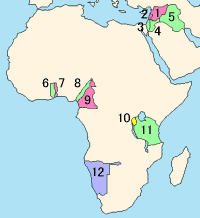
A League of Nations mandate was a legal status for certain territories transferred from the control of one country to another following World War I, or the legal instruments that contained the internationally agreed-upon terms for administering the territory on behalf of the League of Nations. These were of the nature of both a treaty and a constitution, which contained minority rights clauses that provided for the rights of petition and adjudication by the International Court.
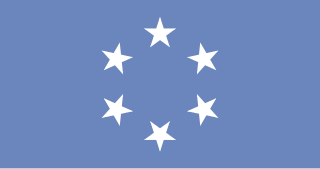
The Trust Territory of the Pacific Islands (TTPI) was a United Nations trust territory in Micronesia administered by the United States from 1947 to 1994.

The United Nations Trusteeship Council is one of the six principal organs of the United Nations, established to help ensure that trust territories were administered in the best interests of their inhabitants and of international peace and security. The trust territories—most of them former mandates of the League of Nations or territories taken from nations defeated at the end of World War II—have all now attained self-government or independence, either as separate nations or by joining neighbouring independent countries. The last was Palau, formerly part of the Trust Territory of the Pacific Islands, which became a member state of the United Nations in December 1994.

United Nations trust territories were the successors of the remaining League of Nations mandates, and came into being when the League of Nations ceased to exist in 1946. All of the trust territories were administered through the United Nations Trusteeship Council. The one territory not turned over was South-West Africa, which South Africa insisted remained under the League of Nations Mandate. It eventually gained independence in 1990 as Namibia. The main objection was that the trust territory guidelines required that the lands be prepared for independence and majority rule.

The United Nations Truce Supervision Organization (UNTSO) is an organization founded on 29 May 1948 for peacekeeping in the Middle East. Its primary task was providing the military command structure to the peace keeping forces in the Middle East to enable the peace keepers to observe and maintain the cease-fire, and as may be necessary in assisting the parties to the Armistice Agreements in the supervision of the application and observance of the terms of those Agreements. The command structure of the UNTSO was maintained to cover the later peace keeper organisations of the United Nations Disengagement Observer Force (UNDOF) and the United Nations Interim Force in Lebanon (UNIFIL).

The United Nations System consists of the United Nations, and the six principal organs of the United Nations: the General Assembly, Security Council, Economic and Social Council (ECOSOC), Trusteeship Council, International Court of Justice (ICJ), and the UN Secretariat, specialized agencies, and affiliated organizations. The executive heads of some of the United Nations System organizations and the World Trade Organization, which is not formally part of the United Nations System, have seats on the United Nations System Chief Executives' Board for Coordination (CEB). This body, chaired by the Secretary-General of the United Nations, meets twice a year to co-ordinate the work of the organizations of the United Nations System.

British Cameroons was a British Mandate territory in British West Africa. Today, the territory forms parts of Northern Nigeria in West Africa and Cameroon in Central Africa.

British Togoland, officially the Mandate Territory of Togoland and later officially the Trust Territory of Togoland, was a territory in West Africa, under the administration of the United Kingdom. It was effectively formed in 1916 by the splitting of the German protectorate of Togoland into two territories, French Togoland and British Togoland, during the First World War. Initially it was a League of Nations Class B mandate. In 1922, British Togoland was formally placed under British rule while French Togoland, now Togo, was placed under French rule.
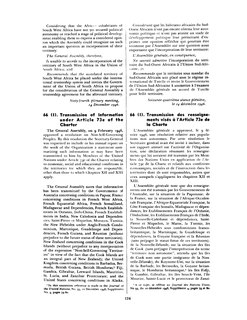
The United Nations list of Non-Self-Governing Territories is a list of places that the United Nations General Assembly deems to be "non-self-governing" and subject to the decolonization process. Chapter XI of the United Nations Charter embodies a "Declaration on Non-Self-Governing Territories" which declares that the interests of the occupants of dependent territories are paramount and requires member states of the United Nations in control of non-self-governing territories to submit annual information reports concerning the development of those territories. Since 1946, the General Assembly has maintained a list of non-self governing territories under member states' control. Since its inception, dozens of territories have been removed from the list, typically when they attained independence or internal self-government, while other territories have been added as new administering countries joined the United Nations or the General Assembly reassessed the status of certain territories.

French Togoland was a French colonial League of Nations mandate from 1916 to 1960 in French West Africa. In 1960 it became the independent Togolese Republic, and the present day nation of Togo.

Southern Cameroons was the southern part of the British Mandate territory of British Cameroons in West Africa. Since 1961 it has been part of the Republic of Cameroon, where it makes up the Northwest Region and Southwest Region. Since 1994, pressure groups in the territory have sought independence from the Republic of Cameroon, and the Republic of Ambazonia was declared by the Southern Cameroons Peoples Organisation (SCAPO) on 31 August 2006.
United Nations Security Council Resolution 21, adopted unanimously at the 124th meeting of the Security Council on April 2, 1947, placed the former German Pacific Islands north of the Equator, which were formerly mandated to Japan by the League of Nations, under the Trusteeship System. The Security Council declared 16 Articles under which it had approved the terms. It declared the United States to be the Administering Authority and gave it permission to militarise the territory.

The Trust Territory of Somaliland, officially the "Trust Territory of Somaliland under Italian administration" was a United Nations Trust Territory situated in present-day northeastern, central and southern Somalia. It had as capital Mogadishu and was administered by Italy from 1949 to 1960, following the dissolution of the former British Military Administration.
Chapter XII of the United Nations Charter deals with the international trusteeship system. It reaffirms the twin goals mentioned in Chapter XI to "promote the political, economic, social, and educational advancement of the inhabitants of the trust territories, and their progressive development towards self-government or independence". It also provides that the trusteeship system applies to:
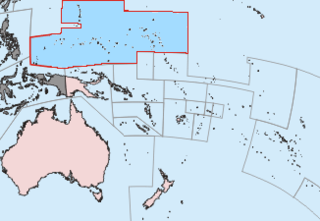
The High Commissioner of the Trust Territory of the Pacific Islands was an official who ruled the American Trust Territory of the Pacific Islands, a United Nations trusteeship in the Pacific Ocean under the administration of the United States, between 1947 and 1994. The territory consisted of islands captured by America during World War II, prior to which they had been part of the Empire of Japan as the South Pacific Mandate. After World War II, the United Nations placed the territory under the United States trusteeship as the Trust Territory of the Pacific Islands. The islands are now part of Palau, Northern Mariana Islands, Federated States of Micronesia, and Marshall Islands.
Trust for London is an independent charitable foundation which aims to tackle poverty and inequality in London and its root causes. It was established in 1891 as the City Parochial Foundation and changed its name to Trust for London in 2010.
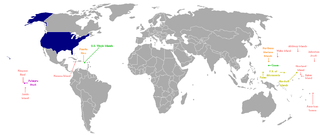
United Nations Security Council resolution 683, adopted on 22 December 1990, after recalling Resolution 21 (1947) which approved the Trusteeship Territory of the Japanese Mandated Islands as well as Chapter XII of the United Nations Charter which established the United Nations Trusteeship system, the Council determined that, in the light of entry into force of new status agreements for Federated States of Micronesia, the Marshall Islands and the Northern Mariana Islands, the objectives of the Trusteeship Agreement had been completed and therefore ended the Trusteeship Agreement with those entities.

United Nations Security Council resolution 956, adopted unanimously on 10 November 1994, after recalling Chapter XII of the United Nations Charter which established the United Nations Trusteeship system and Resolution 21 (1947) which approved the Trusteeship Territory of the Japanese Mandated Islands, the Council determined that, in the light of entry into force of a new status agreement for the Republic of Palau, the objectives of the Trusteeship Agreement had been completed and therefore ended the status of Palau as a Trust Territory.

The Allied administration of Libya was the control of the ex-Italian colony of Libya by the Allies from 1947 until Libyan independence was granted in 1951. It was divided into the following:

The British Military Administration of Libya was the control of the regions of Cyrenaica and Tripolitania of the former Italian Libya by the British from 1947 until Libyan independence in 1951. It was part of the Allied administration of Libya.














